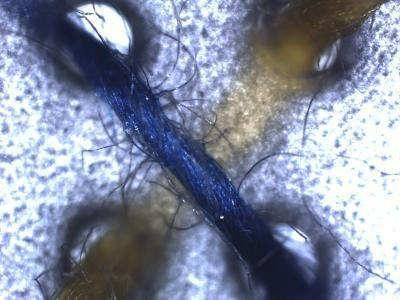Lab on Chip to Offer Cheaper, Faster HIV Test

Imagine shrinking an entire lab to a hand held gadget that allows easy detection of HIV virus and Syphilis in the remotest corners of the world. This seems possible, thanks to Samuel K. Sia, assistant professor of biomedical engineering at Columbia Engineering and team who have invented the mChip (mobile microfluidic chip) that can interpret quantitative blood test results, independent of user interpretations.
Lead scientist Samuel K. Sia noted, "We have engineered a disposable credit card-sized device that can produce blood-based diagnostic results in minutes". "The idea is to make a large class of diagnostic tests accessible to patients in any setting in the world, rather than forcing them to go to a clinic to draw blood and then wait days for their results," he added.
A prick is all it needs to sample out a drop of blood allowing quick detection of disease such as AIDS within 15 minutes. This new technology, a breakthrough in diagnostics could revolutionize medical care around the world.
The device allows blood checks for deadly infectious diseases that could benefit newborns and pregnant women especially in pockets where diagnostic tests are either not possible or not reachable. Results can be seen with the naked eye or with a low-cost detector.
The study published in the journal, Nature Medicine, states that the mChip, the size of a credit card is an integrated micro fluidic-based diagnostic device that significantly reduces the time between testing patients and treating them. The device provides a viable option to field based medical workers who can run complex laboratory assays at a projected minimal cost of $1 in the remotest areas. The cost of the instrument at $100 each holds miniature test tubes and chemicals required for the assays.
The mChip project has been supported by funding from the National Institutes of Health and Wallace Coulter Foundation. The prototype is being tested in Rwanda, where fatal diseases like HIV/AIDS often go undetected.
In his latest study, Sia's estimates that global access to discounted tests for infectious diseases such as syphilis could prevent close to million still births annually. "In the U.S., point-of-care devices like this are attractive because they are more convenient," he says. "In developing countries, there is simply no alternative," he added.
Sia hopes to extend the use of the mChip to help pregnant women in Rwanda, who, he notes cannot access suitable blood test measures as they live far away from testing clinics, thus delaying any possible medical interventions."Diagnosis of infectious diseases is very important in the developing world," said Sia. "When you're in these villages, you may have the drugs for many STDs, but you don't know who to give treatments to, so the challenge really comes down to diagnostics."
An advantage of the 'lab-on-chip' card is that it eliminates shipping of blood sample vials to the lab centres and then incurring long waits for the actual test results to come through. One of its kinds, the mChip can diagnose multiple diseases all at once and is superior to the current technique of lateral flow method.
As per Sia's estimations, his device would cost about $2 to $3 as against lateral flow tests which can sometimes cost more than $4. The lateral flow technique remains defeated as regards pricing; also lacks the benefits of detecting multiple infections at one go.
Gottfried Hirnschall, director of the WHO HIV/AIDS department, wrote in an e-mail that the organization "welcomes this development" of testing technology, adding that these devices "will be particularly useful" in eliminating transmission of HIV and syphilis from mother to child through earlier treatment.
Sia's 'lab on a chip' is a contender for an undecided number of grants to be awarded by the end of 2011; to be sponsored by USAID, the Gates Foundation and others as part of "Saving Lives at Birth" challenge. The award totaling $14 million has been set for relevant projects under this category.
Sia notes that despite the initial excitement from the global health community, further funding is crucial for development of the mChip. Any lack of interest from companies is likely keep the test from reaching the ground in the next couple of years.
"The challenge now," he added, "is how to go from an academic study to distributing this test in the field."Sia presented the chip test at a technology competition for maternal and child health last week in Washington.
© Copyright IBTimes 2025. All rights reserved.





















